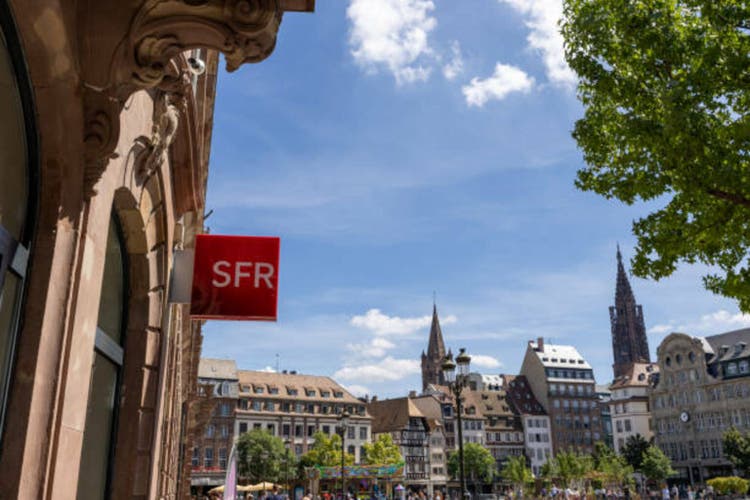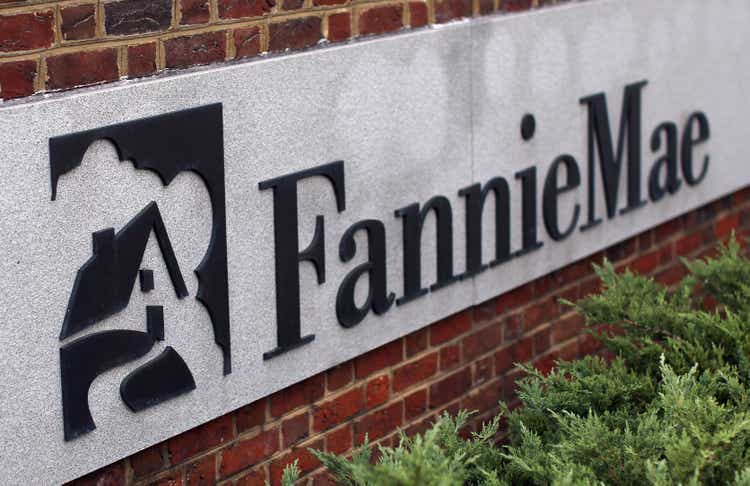Current Climate brings you the latest news about the business of sustainability every Monday. Sign up to get it in your inbox.
getty
Inpassing President Trump’s budget bill Congressional Republicans last week ignored warnings that eliminating federal incentives for large-scale clean power and manufacturing projects could kill jobs and development in Red States. That outcome was expected, but is still a remarkable break historically with the tradition of politicians always trying to ensure they secure goodies for their districts–like big solar panel plants in Georgia or billion-dollar battery factories in Ohio and North Carolina.
The bill Trump signed into law on July 4 adds more than $3 trillion to the federal deficit, mainly by extending tax cuts for wealthy Americans and pumping up defense spending to $1 trillion. It also phases out tax credits for big wind and solar projects by next year and kills electric vehicle tax credits in September. At the same time, traditional fossil fuels, a top source of dangerous climate change, won new benefits in the legislation, including new access to drill in Alaska and the Gulf of Mexico, cheaper royalties to mine coal on federal land and new tax breaks for oil and gas drilling. It seems odd that such long-established industries, operating for well more than a century, still need the kind of government assistance now being denied to newer, more promising alternatives.
Energy analysts see the shift away from rapidly growing clean energy, the top source of new electricity generation in the U.S., as a risky move not only because it allows countries such as China to widen its dominance in producing batteries, electric cars, wind turbines and solar panels, but also because it’s likely to raise energy prices for Americans in the years to come. That’s because energy demand is rising quickly, but adding less wind and solar with battery storage to the grid, especially in the late 2020s as incentives vanish, ensures that utility rates will rise.
“This Trump energy tax will cost electricity customers billions of dollars in higher bills. Drivers will need to fill up more often at the pump. And costs for things like cleaner cars, solar energy and efficient air conditioners will skyrocket,” said Manish Bapna, president of the Natural Resources Defense Council. The bill will “bring the renaissance in American clean energy production to a halt and send good, domestic manufacturing jobs to our foreign rivals.”
Trump called his budget the “One Big Beautiful” bill. But given how damaging it could be for clean energy jobs and investment, it looks like a great leap backward for the U.S. energy sector.
The Big Read
Charlie Riedel/AP File
Red States–And AI–Are Big Losers From Trump’s Clean Energy Massacre
President Trump’s One Big Beautiful Bill Act would cut the legs out from under the renewable energy industry.
The biggest hit: The bill would quickly phase out federal tax credits that have for years enabled wind and solar developers to offset 30% or more of project costs. Yes, it could have been even worse. At the last minute, the Senate’s Republican leadership ditched a proposed excise tax on wind and solar projects using Chinese components which could have added 20% to the cost of many projects. But it left in a fast phase-out of the tax credits.
Moreover, there are lots of other anti-green, pro-fossil fuel bullets the industry didn’t dodge. The bill would open more federal lands to oil and gas leasing at lower royalty rates; end tax credits and other subsidies for electric vehicles; and refill the Strategic Petroleum Reserve. There’s also a new tax break to incentivize mining metallurgical coal, now to be considered a strategic mineral.
Uncertainty, and the looming end of federally subsidized tax equity financing, could plunge renewables investing into a deep freeze, says Sandhya Ganapathy, CEO of Houston-based EDP Renewables North America (which operates wind and solar plants). “It severely hamstrings the U.S. ability to meet skyrocketing power demands and dilutes its economic competitiveness on the global stage,” she says.
Ironically, the impact will hit especially hard in Republican areas–a fact that Forbes (and others) thought last November might protect the industry from such savage cuts. A map (below) created by Michael Thomas, founder of Cleanview, shows that 78% of renewable energy projects underway are located in Red districts.
Hot Topic
SecondMuse
Todd Khozein, CEO of global climate and social advisory firm SecondMuse, on the end of Biden’s Inflation Reduction Act
The new budget bill makes dramatic changes, essentially ending the IRA. How do you assess the change?
We gave American innovation a fighting shot with the IRA and the Bipartisan Infrastructure. And we saw extraordinary progress, like the number of entrants into the long-duration energy storage field, the amount of investment that was going on, the investor enthusiasm, the coordination between grants from either the Department of Energy or the National Science Foundation.
This really gave the U.S. a shot to take a major share of the $270 trillion global climate transition. There's a major economic opportunity that the biggest economies in the world are all going after, and it feels like America is bowing out of it.
I think it's tragic because that's jobs. I feel like we've lost our way a little bit. We've gotten so focused on beating the other side politically that we've forgotten about this country. There's this extraordinary promise of America, that a bunch of people from a bunch of different places, where all of us are immigrants except for the indigenous communities here, have all been able to come together and build something pretty extraordinary.
We've kind of lost sight of that and gotten so wrapped up into one-upping things. We've forgotten that the way that you build things is by people working together. We don't need so much heat. Just tone it down. Let's work together and build something extraordinary. I think that we were on a path to doing that. Now it feels like taking a backseat.
What are the international implications?
Nobody's going to be cheering louder than China. This is a global market that we're choosing not to participate in. So we're not going to define it and we're not going to be able to have a seat at the table in the way we did before. The tragedy of this is that you have extraordinary American innovators that went to really good schools and are doing really well, and some of the most brilliant scientists.
We've lost the thread of what makes an economy great, what makes a country strong, what makes a society vibrant. I feel like this is a sign of where we've effectively dismantled something and haven't really put anything else in its place with this bill which, in my opinion, is tragic.
Do you see reasons to be optimistic about how the U.S. cleantech sector can contend with the shift in federal policy?
What I think is hopeful and what I see is 10 years ago there was effectively no climate tech market in New York. … We had a really clear state government leader and leadership that said, “this is our strategy and we're going to build this.” There was clear legislation, the Climate Leadership And Community Protection Act, the legislation said we're going to become leaders in climate tech. And when you go to New York Climate Week, New York has become one of the leading hubs of climate technology in the world. It was because we did things. So I feel like this is actually a really empowering story because it means that all you need is a consistent and sustained strategy.
If you have a consistent and sustained strategy from a government level and you have some mechanism to get people to come together, figure out what people's problems are and then target new legislation around the problems that are getting in the way of real entrepreneurs in a real way, this can happen at a local level. This can happen at the state level. If you do that, you will succeed. Did we rely on federal support to help the rest of our business? 100%. Did a lot of our entrepreneurs receive non-dilutive capital? 100%. But we got $430 million in the last two and a half years of private sector capital investing in these businesses. This was because of state mandates. The city and all of its real estate and all of its buildings use new climate technologies to make climate targets. You can do so much at the state level. That may be the thread of hope.
What Else We’re Reading
Key roles were vacant at National Weather Service offices in Texas as floods hit (New York Times)
Pope Leo XIV approves an environmental protection mass. He’ll celebrate the private Mass for the Care of Creation on July 9 (Religion News)
EPA puts on leave 139 employees who spoke out against policies under Trump (Associated Press)
Trump promised deregulation. His new law would regulate energy to death (Heatmap)
How a major new environmental reform will affect homebuilding in California (Los Angeles Times)
EPA leader shakes up agency with ‘drill baby drill’ mandate. Administrator Lee Zeldin promotes a shift in priorities that puts him at odds with staff (Wall Street Journal)
There’s a race to power the future. China is pulling away. Beijing is selling clean energy to the world, Washington is pushing oil and gas (New York Times)
More From Forbes
ForbesElon Is Asking For It: What Musk’s Latest Trump Spat Means As Tesla Sales SinkBy Alan OhnsmanForbesNew Science Shows Why Some People Just Don’t Care About ClimateBy Phil De LunaForbesThe World’s Biggest Carbon Emitters—And The Story Behind The NumbersBy Robert Rapier
.png)











 English (US) ·
English (US) ·